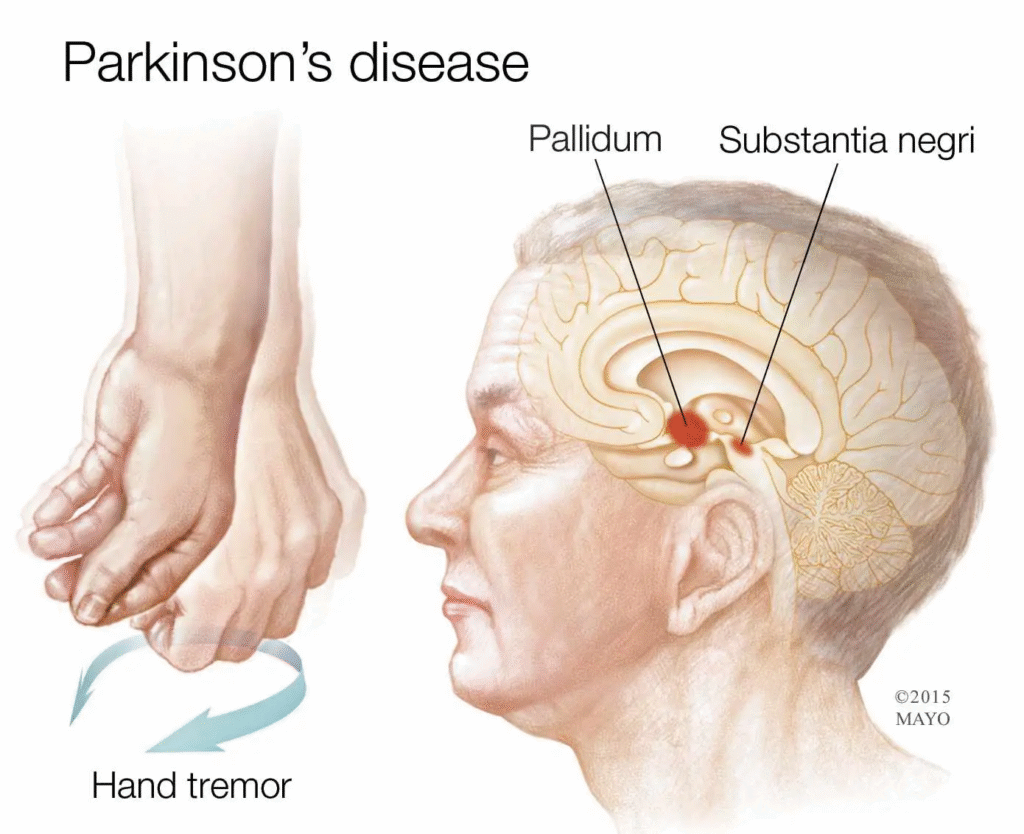The Basics of Parkinson’s Disease..!
Great Scott! It’s Parkinson’s!
Remember that guy who followed a mad scientist around, travelling back in time? That’s right, Marty McFly. Or rather, Michael J. Fox. Mostly known as a brilliant actor, he is also an advocate for Parkinson’s Disease (PD), being diagnosed with it at the age of 29. It isn’t common to be diagnosed that early, as the average age is 65. Parkinson’s is not a fatal disease, but it is motor-debilitating, with deficits like akinesia occurring over time.

Dopamine (DA), a key molecule in the brain, plays a crucial role in reward processing and movement control; however, with aging, this naturally declines. In PD, there is progressive loss of DA in the Substantia Nigra and Ventral Tegmental Area. Additionally, Lewy bodies (clumps of protein) gather in brain areas that are responsible for controlling movement.
An interview was done with Mikayla, a person living with PD, and to her, “it doesn’t seem so bad, Parkinson’s disease still allows for a chance at life compared to other health diseases”. Diagnosed in 2022, Mikayla enjoyed her artistic career, which she continues and participates in exhibitions even after her retirement. She recalls her first symptoms of jumbled words, pain on one side of the body and scuffling feet. Loss of smell is a common symptom of PD, as well as constipation and anxiety, which is why it can take years to diagnose correctly.
Although difficult in the beginning, she has adapted sufficiently with the right support and her current regimen of daily gym, fast movements whenever possible and keeping up with medication, gives her hope for the future. To everyone learning about PD, her best advice is that “no two people are the same”.

https://www.yorkrehabclinic.ca/media/mediahub/generic-media/Parkinsons-2.webp
The thing with Parkinson’s disease is that there is a good chance treatments can work. The most common drug treatment is Sinemet (dopamine agonist). It stops tremors, regular movement comes back, and symptoms disappear for 3-4 hours. But if it doesn’t work for some, there are always other options. Specialists recommend the gym as it helps with rigidity and relieves symptoms. Aerobic exercises and weights to target strength and movement, and dual task/explosive movements to help reset a new normal as PD slows down movement over time.
A further potential treatment is Deep Brain Stimulation (DBS), for individuals under 70 years of age and in great health, and whose medical treatment is ineffective. DBS is a device similar to a pacemaker, sending pulses to the brain to prevent tremors and dystonia. Parkinson’s NZ is a charitable organization that provides educators who work alongside the person with PD and their family, and can help with treatment options, whether drug treatments work or not.









One Comment